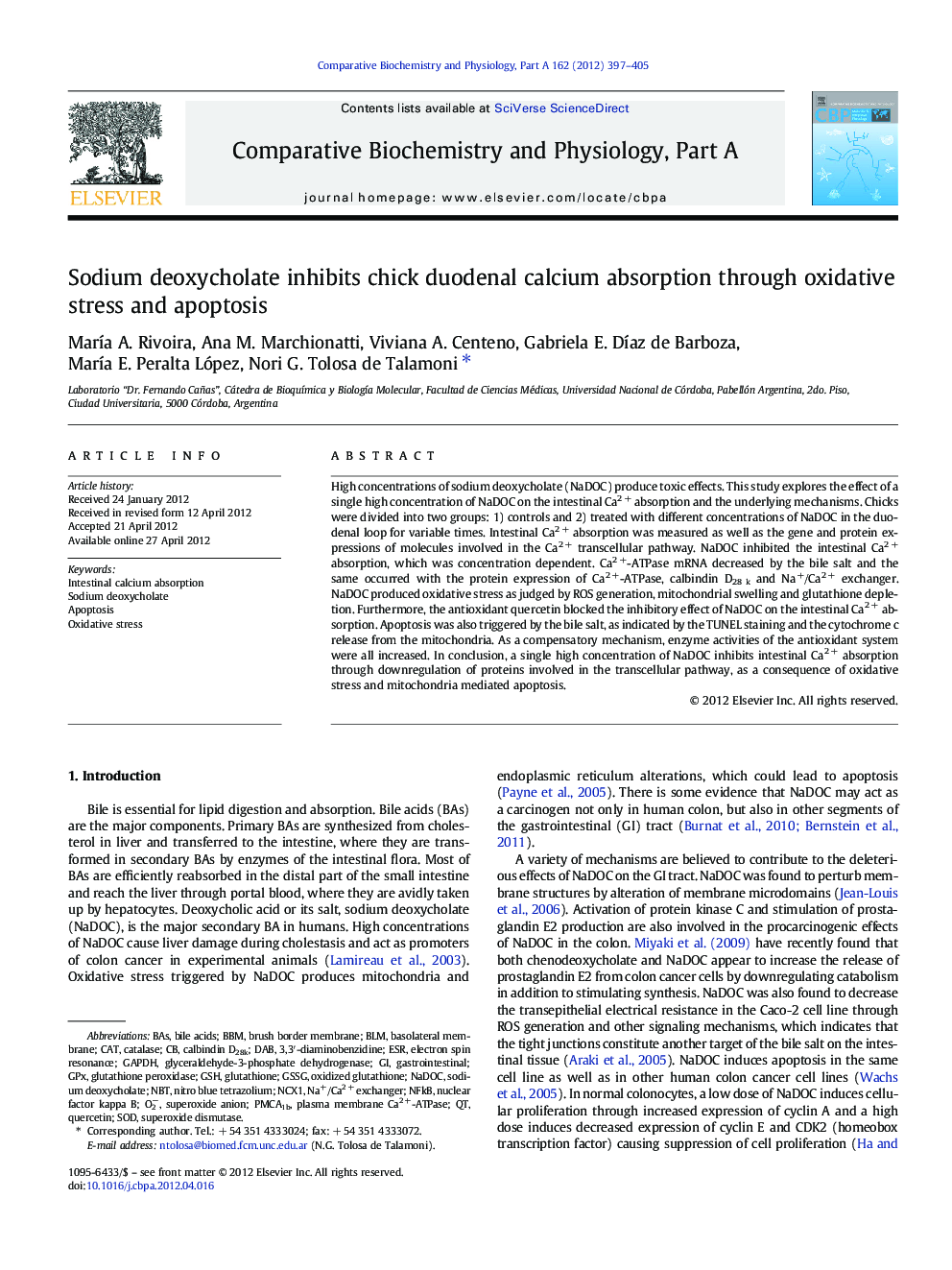| Article ID | Journal | Published Year | Pages | File Type |
|---|---|---|---|---|
| 1972621 | Comparative Biochemistry and Physiology Part A: Molecular & Integrative Physiology | 2012 | 9 Pages |
Abstract
High concentrations of sodium deoxycholate (NaDOC) produce toxic effects. This study explores the effect of a single high concentration of NaDOC on the intestinal Ca2Â + absorption and the underlying mechanisms. Chicks were divided into two groups: 1) controls and 2) treated with different concentrations of NaDOC in the duodenal loop for variable times. Intestinal Ca2Â + absorption was measured as well as the gene and protein expressions of molecules involved in the Ca2Â + transcellular pathway. NaDOC inhibited the intestinal Ca2Â + absorption, which was concentration dependent. Ca2Â +-ATPase mRNA decreased by the bile salt and the same occurred with the protein expression of Ca2Â +-ATPase, calbindin D28Â k and Na+/Ca2Â + exchanger. NaDOC produced oxidative stress as judged by ROS generation, mitochondrial swelling and glutathione depletion. Furthermore, the antioxidant quercetin blocked the inhibitory effect of NaDOC on the intestinal Ca2Â + absorption. Apoptosis was also triggered by the bile salt, as indicated by the TUNEL staining and the cytochrome c release from the mitochondria. As a compensatory mechanism, enzyme activities of the antioxidant system were all increased. In conclusion, a single high concentration of NaDOC inhibits intestinal Ca2Â + absorption through downregulation of proteins involved in the transcellular pathway, as a consequence of oxidative stress and mitochondria mediated apoptosis.
Keywords
BLMNBTNFkBGSSGNa+/Ca2 + exchangerGAPDHGPXGSHNCX1BBMCATNaDOCPMCA1bESRplasma membrane Ca2 +-ATPaseDAB3,3′-diaminobenzidineBAsO2−superoxide anionBile acidsBrush border membranenitro blue tetrazoliumOxidative stressintestinal calcium absorptionApoptosisGastrointestinalElectron spin resonanceSODSodium deoxycholateSuperoxide dismutaseBasolateral membranenuclear factor kappa BCatalaseCalbindin D28KQuercetinGlutathioneoxidized glutathioneglutathione peroxidaseglyceraldehyde-3-phosphate dehydrogenase
Related Topics
Life Sciences
Biochemistry, Genetics and Molecular Biology
Biochemistry
Authors
MarÃa A. Rivoira, Ana M. Marchionatti, Viviana A. Centeno, Gabriela E. DÃaz de Barboza, MarÃa E. Peralta López, Nori G. Tolosa de Talamoni,
